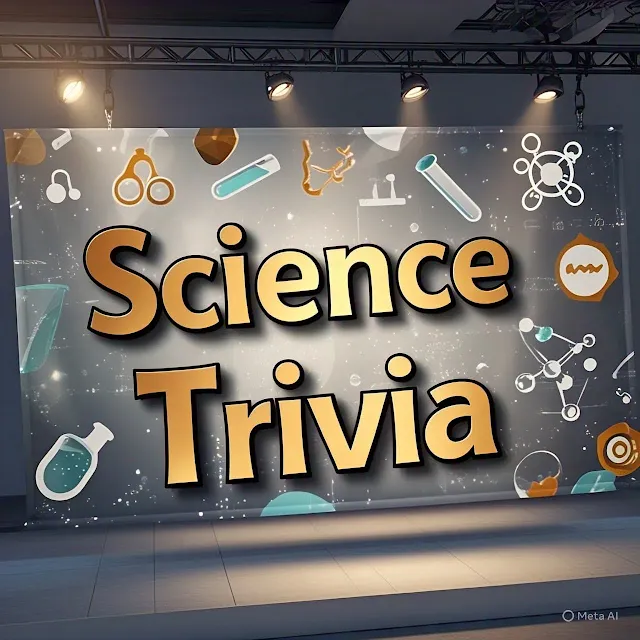Top 20 Science Trivia Questions and Answers to Boost Your Brainpower
Science Trivia Questions to Test Your Knowledge
Looking for a fun and educational way to challenge your brain? These science trivia questions are perfect for quiz nights, classroom activities, or simply brushing up on fascinating science facts. Covering biology, chemistry, physics, astronomy, and general science, this list will spark curiosity in science lovers of all ages.
Science Trivia Questions (No Answers)
-
What planet is known as the Red Planet?
-
What gas do plants absorb from the atmosphere for photosynthesis?
-
How many bones are there in the adult human body?
-
Which element has the chemical symbol 'O'?
-
What is the boiling point of water at sea level in Celsius?
-
Who developed the theory of general relativity?
-
What part of the cell contains DNA?
-
Which blood type is considered the universal donor?
-
What is the hardest natural substance on Earth?
-
How many planets are in our solar system?
-
What type of energy does a moving object have?
-
Which planet has the most moons?
-
What is the main gas found in the Earth's atmosphere?
-
What force keeps the planets in orbit around the Sun?
-
Which organ is primarily responsible for filtering blood in humans?
-
What is the chemical formula for table salt?
-
What is the center of an atom called?
-
Which vitamin is primarily produced when skin is exposed to sunlight?
-
What phenomenon explains why the sky is blue?
-
What is the primary source of energy for life on Earth?
Science Trivia Questions and Answers
Ready to check your answers? Here’s a breakdown with short, fact-based explanations to deepen your scientific knowledge.
-
What planet is known as the Red Planet?
Answer: Mars – It appears red due to iron oxide (rust) on its surface. -
What gas do plants absorb from the atmosphere for photosynthesis?
Answer: Carbon dioxide – Essential for making glucose during photosynthesis. -
How many bones are there in the adult human body?
Answer: 206 bones – Infants have more, which fuse as they grow. -
Which element has the chemical symbol 'O'?
Answer: Oxygen – Atomic number 8, vital for respiration. -
What is the boiling point of water at sea level in Celsius?
Answer: 100°C – Standard boiling point under normal atmospheric pressure. -
Who developed the theory of general relativity?
Answer: Albert Einstein – Revolutionized modern physics in 1915. -
What part of the cell contains DNA?
Answer: The nucleus – Acts as the control center of the cell. -
Which blood type is considered the universal donor?
Answer: O negative – Can be donated to all other blood types. -
What is the hardest natural substance on Earth?
Answer: Diamond – Formed under extreme pressure, used in cutting tools. -
How many planets are in our solar system?
Answer: Eight – Pluto was reclassified as a dwarf planet in 2006. -
What type of energy does a moving object have?
Answer: Kinetic energy – Directly related to mass and speed. -
Which planet has the most moons?
Answer: Saturn – Surpassed Jupiter with over 145 confirmed moons. -
What is the main gas found in the Earth's atmosphere?
Answer: Nitrogen – Comprises about 78% of the atmosphere. -
What force keeps the planets in orbit around the Sun?
Answer: Gravity – The Sun’s massive gravity pulls planets into orbit. -
Which organ is primarily responsible for filtering blood in humans?
Answer: Kidneys – Remove waste and balance fluids. -
What is the chemical formula for table salt?
Answer: NaCl – Sodium chloride, essential for human health. -
What is the center of an atom called?
Answer: The nucleus – Contains protons and neutrons. -
Which vitamin is primarily produced when skin is exposed to sunlight?
Answer: Vitamin D – Important for bone health and immune function. -
What phenomenon explains why the sky is blue?
Answer: Rayleigh scattering – Blue light scatters more than other colors. -
What is the primary source of energy for life on Earth?
Answer: The Sun – Drives photosynthesis and weather patterns.
Conclusion
Science trivia is a great way to make learning fun and engaging. Whether you're preparing for a quiz night, teaching students, or just love interesting facts, these questions help spark curiosity across all branches of science. Keep exploring, stay curious, and challenge yourself regularly—because science is all around us, and there's always more to learn!

